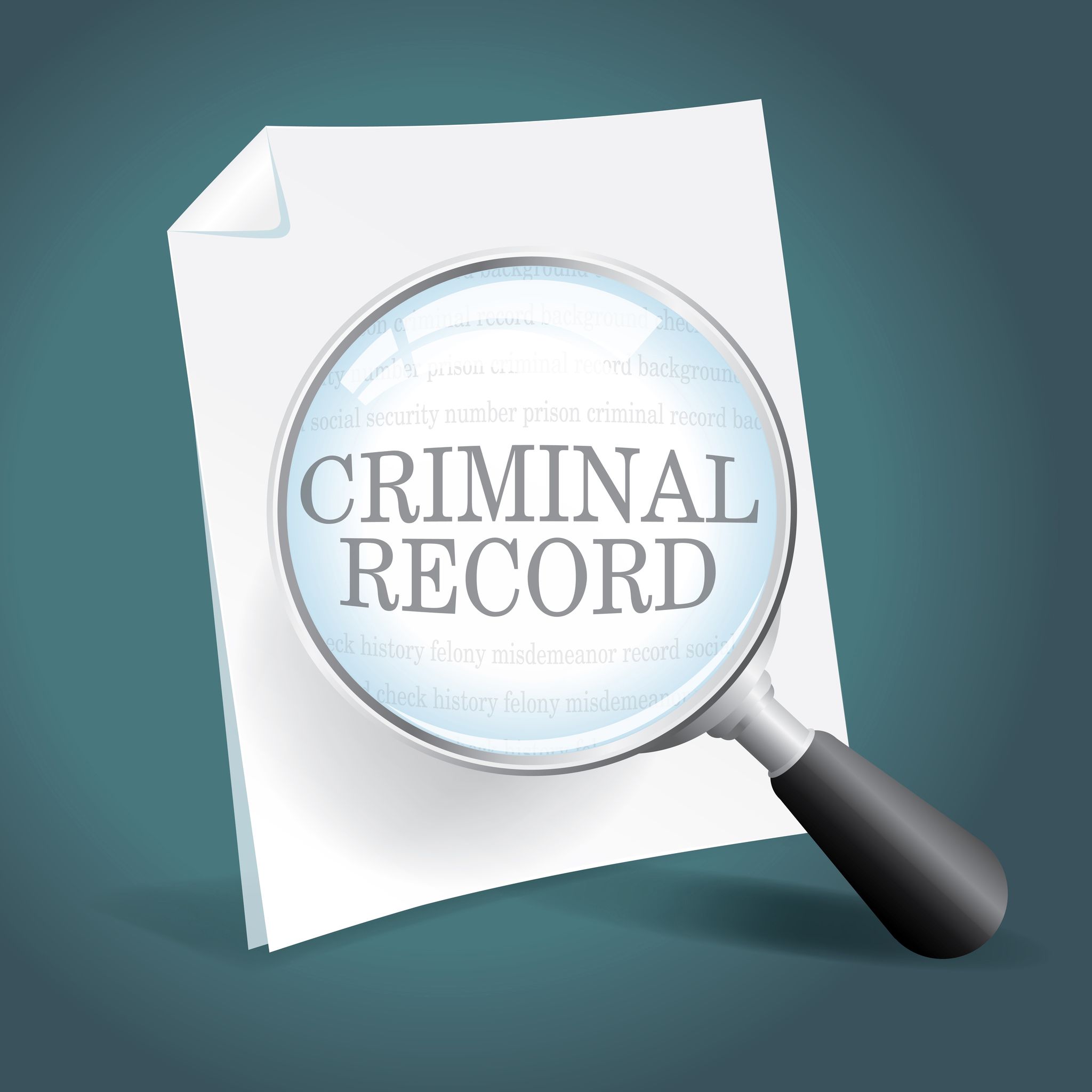Seeking Expungement or Sealing of Records in Illinois? Andrew M. Weisberg Can Help

A criminal record can have long-lasting effects on your life, impacting your ability to secure employment, housing, and educational opportunities. Fortunately, Illinois law provides individuals with the opportunity to expunge or seal their criminal records under certain circumstances, allowing them to move forward without the burden of past mistakes. If you are considering expungement or sealing of your criminal record in Illinois, it is essential to have an experienced attorney like Andrew M. Weisberg to guide you through the process and ensure the best possible outcome.
Understanding Expungement and Sealing of Records in Illinois
Expungement and sealing are two different legal processes that can help you clear your criminal record, but they operate differently:
- Expungement: Expungement completely erases your criminal record. If your record is expunged, it is as though the arrest or conviction never happened. Law enforcement agencies, employers, and others will not be able to access your expunged record.
- Sealing: Sealing your record does not erase it but restricts access to it. A sealed record is not accessible to the general public or most employers, though certain law enforcement agencies and other entities may still view it.
Eligibility for Expungement in Illinois
Eligibility for expungement in Illinois depends on the outcome of your case and the specific charges involved. Generally, you may be eligible for expungement if:
- You Were Arrested But Not Charged: If you were arrested but charges were never filed, or the charges were dismissed, you may be eligible for expungement.
- You Were Acquitted or Found Not Guilty: If you were acquitted or found not guilty of the charges against you, you may be eligible for expungement.
- Your Case Was Dismissed or Nolle Prosequi: If the case against you was dismissed or the prosecution decided not to pursue the charges (nolle prosequi), you may be eligible for expungement.
- You Completed a Court Supervision: Certain misdemeanor offenses that ended in court supervision and were successfully completed may be eligible for expungement.
- You Completed a Qualified Probation: Some offenses that resulted in qualified probation and were successfully completed may be eligible for expungement.
Ineligible Offenses for Expungement
Certain offenses are not eligible for expungement in Illinois, including:
- Convictions: Most convictions cannot be expunged, though they may be eligible for sealing. Exceptions include cases where the conviction was reversed or vacated, or you received a pardon from the Governor of Illinois specifically authorizing expungement.
- Major Traffic Offenses: DUI, reckless driving (for those over 25 years old), and other major traffic offenses are not eligible for expungement.
- Sex Offenses Against Minors: Certain sex offenses, particularly those involving minors, are not eligible for expungement.
Waiting Periods for Expungement in Illinois
The waiting period for expungement in Illinois depends on the disposition of your case:
- No Waiting Period: If your case was dismissed, you were acquitted, or you were not charged, you may apply for expungement immediately.
- 5-Year Waiting Period: For certain misdemeanor offenses resulting in court supervision, you must wait 5 years from the completion of supervision before applying for expungement.
- 2-Year Waiting Period: For cases involving qualified probation (Section 710, 1410, or 410 probation), you must wait 2 years from the completion of probation before applying for expungement.
Eligibility for Sealing in Illinois
Sealing your criminal record may be an option if expungement is not available. In Illinois, you may be eligible to seal your record if:
- You Were Convicted: While most convictions are ineligible for expungement, many can be sealed, including certain felonies.
- You Completed Court Supervision: Some misdemeanor offenses resulting in court supervision and successfully completed may be eligible for sealing.
- You Completed Probation or Conditional Discharge: Certain offenses resulting in probation or conditional discharge and successfully completed may be eligible for sealing.
Ineligible Offenses for Sealing
Certain offenses cannot be sealed in Illinois, including:
- DUI Convictions: DUI and reckless driving convictions (for those over 25 years old) cannot be sealed.
- Domestic Battery: Convictions for domestic battery cannot be sealed.
- Sex Offenses Against Minors: Certain sex offenses, particularly those involving minors, are ineligible for sealing.
- Violent Crimes: Certain violent crimes, such as murder, cannot be sealed.
Waiting Periods for Sealing in Illinois
The waiting period for sealing your record in Illinois depends on the nature of your offense:
- No Waiting Period: If your case was acquitted, dismissed, or resulted in nolle prosequi, you can apply to have your record sealed immediately.
- 3-Year Waiting Period: For most misdemeanor and felony convictions eligible for sealing, you must wait 3 years after the completion of your sentence, including probation, parole, or mandatory supervised release.
- No Waiting Period for Some Felonies: As of 2020, some felony offenses, such as Class 3 and 4 felonies, may be sealed immediately after completion of the sentence without a waiting period.
The Process of Expungement and Sealing in Illinois
The process for expungement or sealing of records in Illinois involves several steps, including:
- Determining Eligibility: The first step is to determine whether your case is eligible for expungement or sealing under Illinois law. An experienced attorney like Andrew M. Weisberg can evaluate your case and advise you on the best course of action.
- Filing a Petition: Once eligibility is established, a petition for expungement or sealing must be filed with the circuit court in the county where the arrest or charge occurred. The petition must include detailed information about your case and the relief you are seeking.
- Serving Notice: After the petition is filed, copies must be served to the appropriate state’s attorney, the Illinois State Police, and any other relevant law enforcement agencies. These agencies may object to your petition within a specific timeframe.
- Court Hearing: In some cases, a court hearing may be scheduled to review your petition. During the hearing, the judge will consider any objections from law enforcement and decide whether to grant the expungement or sealing.
- Order of Expungement or Sealing: If the court grants your petition, an order will be issued to expunge or seal your record. The relevant law enforcement agencies will then be directed to either destroy the records or restrict access to them.
Why Choose Andrew M. Weisberg for Expungement or Sealing of Records?
Andrew M. Weisberg is a seasoned criminal defense attorney with extensive experience handling expungement and sealing cases in Illinois. His background as a former Cook County prosecutor gives him unique insights into the legal system, allowing him to navigate the complexities of the expungement and sealing process effectively.
When you choose Andrew as your attorney, you benefit from:
- Comprehensive Legal Knowledge: Andrew’s thorough understanding of Illinois expungement and sealing laws ensures that your case will be handled with the utmost competence and care.
- Personalized Attention: Andrew provides each client with individualized attention, ensuring that your specific circumstances and needs are fully addressed.
- Aggressive Representation: Andrew is committed to advocating for your right to a clean record, and he will work tirelessly to achieve the best possible outcome for your case.
The Importance of Early Legal Intervention
If you are considering expungement or sealing of your criminal record, it is crucial to seek legal representation as soon as possible. Early intervention by a skilled attorney can make a significant difference in the success of your petition. Andrew M. Weisberg will take immediate action to assess your eligibility, prepare your petition, and represent you throughout the process.
Andrew M. Weisberg: Committed to Helping You Clear Your Record
Facing the consequences of a criminal record can be overwhelming and stressful. Andrew M. Weisberg is committed to providing compassionate and effective legal representation throughout the expungement or sealing process. He will keep you informed at every stage, answer all your questions, and fight tirelessly to help you achieve a clean record and a fresh start.
Contact the Law Offices of Andrew M. Weisberg Today
If you are seeking expungement or sealing of your criminal record in Illinois, don’t delay in seeking legal representation. Andrew M. Weisberg is available 24/7 to discuss your case and provide the immediate assistance you need.
Contact Andrew today for a free, confidential consultation:
- Phone: Call (773) 908-9811 anytime, day or night.
- Online: Fill out the Case Review form on our website, and we will get back to you promptly.
Remember, clearing your criminal record can open doors to new opportunities. Let Andrew M. Weisberg put his expertise to work for you.






















































